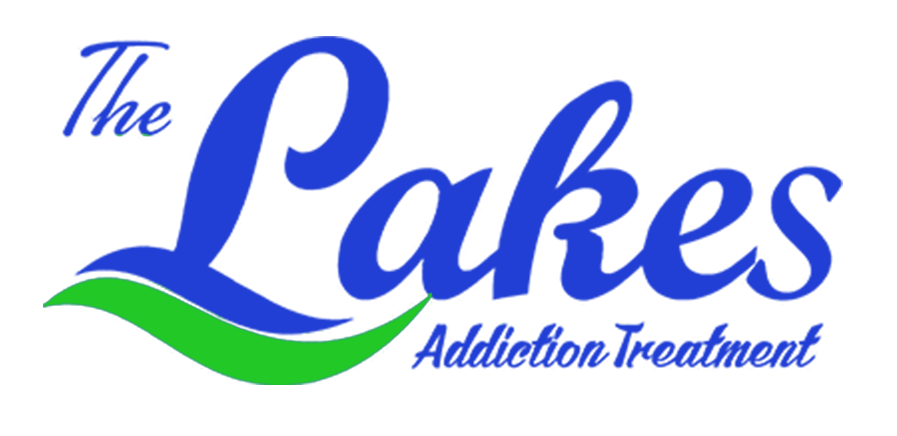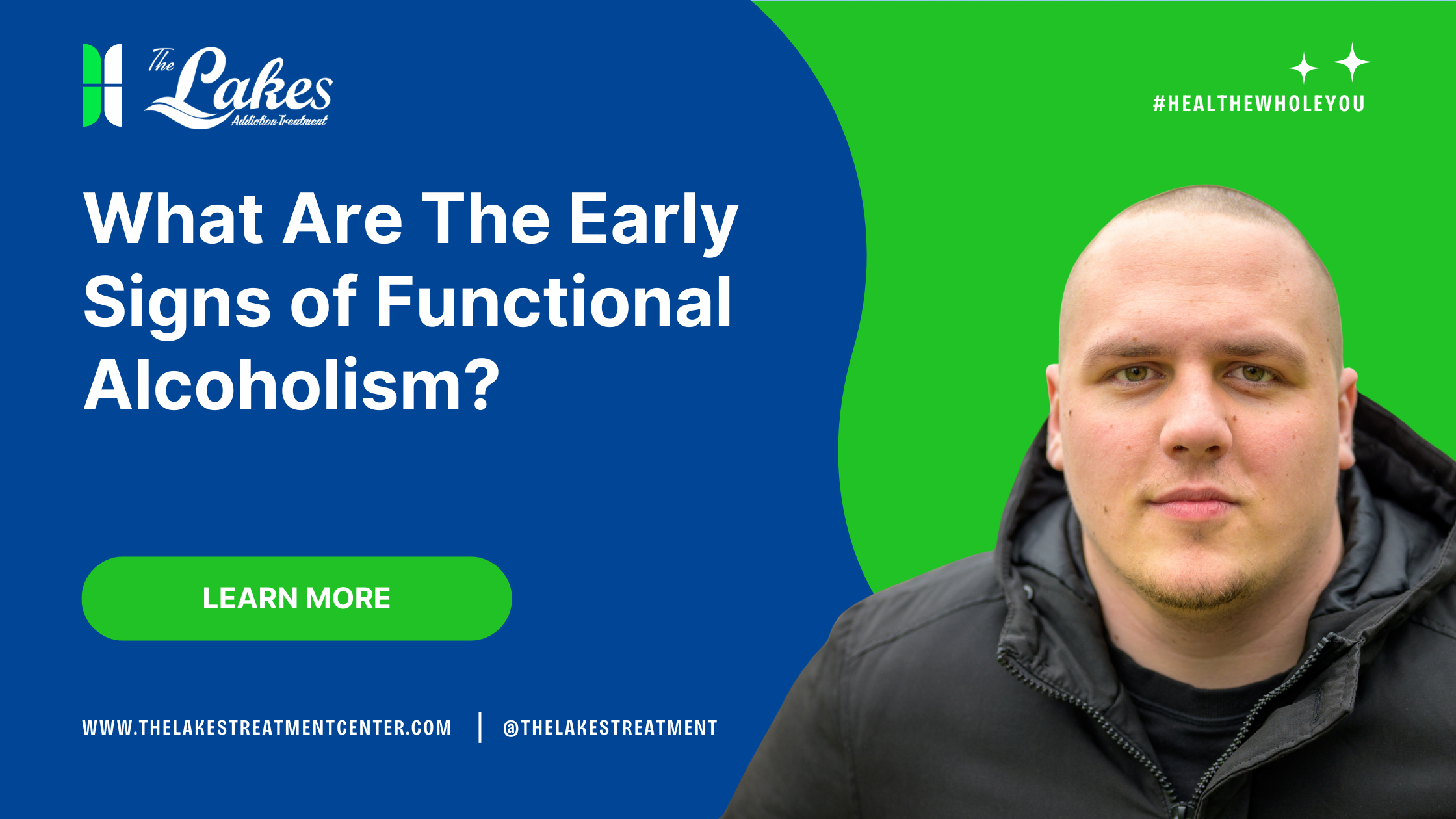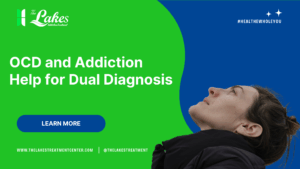Key Takeaways
- The signs of functional alcoholism occur when individuals appear high-functioning while privately experiencing physical, emotional, and behavioral effects of excessive drinking.
- Alcohol addiction presents symptoms across physical, social, behavioral, and psychological domains, including blackouts, irritability, withdrawal, and declining relationships.
- Risk factors for developing functional alcoholism include genetics, high stress, social pressures, mental health conditions, and early alcohol exposure.
- Early recognition and overcoming denial are essential steps toward treatment, supported by options like detox, residential care, and medication-assisted treatment.
- Seeking structured treatment provides the support, stability, and resources needed to address alcohol misuse and pursue long-term recovery.
Alcoholism affects many people, and it can be a challenging addiction to overcome. This is because drinking alcohol is legal and socially accepted, and that can make it easy to slip into addiction without realizing it.
This blog post discusses the signs of functional alcohol misuse, abuse, and addiction. It also provides an overview of the negative impacts of addiction and how to seek help.
Understanding Functional Alcoholism
Functional alcoholism, also known as high-functioning alcoholism, is a condition where individuals appear to be successful and in control of their lives despite struggling with excessive drinking. These individuals often maintain jobs, relationships, and other responsibilities, all while hiding their drinking problem.
Functional alcoholics may seem to have it all together, but behind the scenes, they are grappling with the physical and emotional tolls of alcohol abuse. This can include blackouts, hangovers, mood swings, and strained relationships.
Many functional alcoholics use alcohol as a coping mechanism, which can lead to a cycle of dependence and denial. Recognizing the signs of high-functioning alcoholism is crucial for early intervention and treatment.
Symptoms of Alcohol Addiction
Alcohol consumption is often socially accepted and plays a significant role in the lives of high-functioning alcoholics, who may organize their lives around drinking to maintain an appearance of control. For this reason, some people who suffer from alcohol addiction deny that they have a problem and refuse to seek help.
But there are still clear signs of functional alcohol addiction that can help you better understand patterns of behavior. There are three specific categories to keep in mind: physical health, social health, behavioral health, and mental health (psychological health).
Physical Symptoms and Withdrawal Symptoms
Many alcoholics show physical signs of alcohol addiction, such as:
- Red eyes
- Flushed face
- Slurred speech
- Unsteady movement
They may also experience blackouts, nausea, and frequent headaches. Withdrawal symptoms, such as shakiness and anxiety when not drinking, are critical indicators of alcoholism. Over time, alcohol can damage internal organs, leading to more severe health problems like liver problems.
Social Symptoms
Alcohol addiction affects a person’s social life, as they may neglect their friends and family. Drinking habits can often mask underlying issues and impact social life and relationships. Work and education can also be impacted. An alcoholic may behave differently around people, quickly become angry, and isolate themselves from others.
Behavioral Symptoms
Alcohol addiction often changes a person’s motivation levels and behavior. Binge drinking can negatively affect the brain’s capacity to create new memories, leading to blackouts and potential long-term memory issues. Heavy drinking can cause mood swings, depression, anxiety, irritability, and aggressive behavior. It can also entail neglecting responsibilities, engaging in high-risk activities, or experiencing challenges fulfilling basic obligations.
Psychological Symptoms
Alcohol addiction can cause psychological symptoms, such as increased depression or anxiety. Individuals may appear to lead normal lives yet secretly grapple with alcohol dependence, which manifests through various behaviors and physical symptoms. It’s common for alcoholics to feel stressed and anxious without a sip of alcohol. They may also have trouble controlling their urge to consume alcohol; this can lead to alcoholism.
Risk Factors of Early Alcohol Use Disorder
Understanding the early signs of a high-functioning alcoholic is imperative for helping yourself and others. However, you should also know if you’re at risk for developing alcohol dependence in the future.
Here are the risk factors you should know:
- Genetics play a significant role, as having a family history of alcohol use disorder increases the risk of becoming a functional alcoholic.
- High-stress environments, whether at work, home, or in relationships, can lead individuals to use alcohol as a coping mechanism, resulting in excessive drinking.
- Social pressures also play a part; being in environments that encourage or normalize heavy drinking can make it easier to develop a drinking problem.
- Mental health conditions, such as anxiety or depression, that are undiagnosed or untreated can increase the risk of functional alcoholism.
- Additionally, early exposure to alcohol, especially during formative years, can set the stage for high-functioning alcoholism later in life.
The First Step in Overcoming Alcohol Addiction: Support Groups
Overcoming denial and seeking help is the first step in recovering from alcohol addiction. Recognizing alcohol use disorders and the importance of seeking treatment for those affected by high-functioning alcoholism is crucial. Acknowledging that there is a problem and taking steps to remedy it can be challenging, but it is essential.
You may struggle to admit that you have a problem, and that’s okay. It’s essential to understand that alcohol addiction is a disease, and seeking help is a sign of courage, not weakness.
Recognizing the signs of functional alcoholism and seeking help early is essential to prevent these severe consequences. Treatment options, including medical detox, residential treatment, and medication-assisted treatment (MAT), can help individuals overcome functional alcoholism and achieve a healthier, more balanced life.
Get Alcohol Addiction Treatment from The Lakes Treatment Center
By understanding the signs of misuse, abuse, and addiction, you can start to take steps to overcome addiction. Recognizing the signs of a high-functioning alcoholic is crucial, as it helps in diagnosing individuals who may excel in their professional and personal lives while secretly battling alcohol dependence. Rehabilitation is highly recommended to treat alcohol abuse or dependency because it provides structure and support to begin the journey toward lasting recovery.
At The Lakes Treatment Center, we are dedicated to assisting you with your recovery. Contact us today at (209) 309-3573 to speak with our experts about alcohol addiction treatment.
Frequently Asked Questions
Q: What is functional alcoholism and how is it different from typical alcoholism?
Functional alcoholism refers to people who maintain work, relationships, and responsibilities despite excessive drinking. They often hide symptoms such as blackouts, emotional instability, and dependence. If you notice these patterns in yourself or someone else, consider talking to a professional who can help assess drinking habits safely.
Q: What early signs indicate someone may be a high-functioning alcoholic?
Common early signs include increased secrecy, drinking to cope with stress, frequent hangovers, mood swings, or needing alcohol to feel “normal.” Tracking drinking patterns and discussing concerns with a healthcare provider can help determine whether alcohol use has become unhealthy.
Q: How does alcohol addiction affect physical, social, and emotional health?
Alcohol misuse can lead to red eyes, slurred speech, withdrawal symptoms, strained relationships, irritability, and increased anxiety or depression. If multiple areas of life are affected, seeking an evaluation from an addiction specialist is recommended to determine next steps.
Q: Who is most at risk for developing functional alcoholism?
People with a family history of alcohol use disorder, high-stress environments, social circles with heavy drinking, or untreated mental health conditions face higher risk. Individuals who began drinking at a young age are also more vulnerable. Identifying risk factors early can guide preventive support.
Q: When should someone seek help for alcohol addiction?
Help should be sought when drinking begins interfering with health, relationships, mood, or responsibilities. Or, it should be sought when denial prevents honest self-assessment. Support groups, medical detox, and treatment programs offer safe entry points for recovery.
Q: What treatments help high-functioning alcoholics recover?
Effective treatments include medical detox, residential programs, therapy, and medication-assisted treatment. These approaches provide structure, coping tools, and medical oversight. Contacting a treatment center for an assessment is a strong first step toward safer drinking behaviors or full sobriety.




